Let's start by talking of how you get into the very skin of a raga; what is the process that goes into making a raga, your own?
Ranjani: A raga is one thing, a krithi (composition) in that raga, another. When we talk of alapana (delineation of a raga without lyrics), we are talking of exploring and unravelling the contours of the raga – its syntax, grammar, vocabulary; these are very important.
To attain mastery over a raga, you have to learn to get into the very feel of the raga. This happens over time and practice. In Carnatic music, we believe that learning many compositions in a particular raga allows you a deeper understanding of its core.
Gayatri: Once you establish this connection with a raga and, in a sense, make it your own, the raga is literally like your playground. You can write what you want with it allowing for its personality to sparkle.
How do you think of a raga; meaning, do you believe that every raga has a distinct personality of its own? Talk to us about how you visualize these personalities…
Gayatri: Of course every raga has a distinct identity of its own. Ragas, for starters, are not merely a collection of notes. If I were to break down a raga as the very notes that constitute it, well then I’m an amateur and have a long way to go.
Your question reminds me of an incident from my childhood. My father says that I could identify a lot of ragas as a two-year-old. When he mentioned this to me, I wondered – how does a child understand the framework of a raga and identify it correctly? When a raga was sung, I perhaps had a kind of visual imagery that helped me connect the raga with it – an act of connecting a musical form with an image… Honestly, I don’t know the science of it.
But this is how ragas are to us; they are like you and me – living people with crystal-clear personalities of their own.
The beautiful thing about music, especially Carnatic music, is that it’s not like, I sing, and you merely listen to it. It’s not like film music; that’s easy sugar. To complete this experience, there has got to be a Saraswati not only within me but also one inside a listener. The listener cannot afford to be passive; she/he has got to be participative, has got to respond, to contribute
Over the years of journeying with ragas, has evoking these personalities become easy?
Ranjani: Most certainly. Once you’ve mastered a raga, you’ve got to fly with it; not plod through it academically. You’ve got to have a tight hold of it and yet it should rest lightly, in a way that it’s a part of your subconscious.
The personality of a raga is one thing; what about your own personality of rendering it. Surely there’s a distinctness that comes in its treatment too, right?
Ranjani: To be honest, there is no "I" in our scheme of things. What we are singing today, is truly a reflection of a million souls – seen, unseen; heard, unheard – who have, over centuries now, contributed towards its journey. It’s not merely our parents and our gurus whom we have learnt this art and its many values from; it’s more than even the compositions of the Trinity and other Vaggeyakaras (composers) whom we know and recognize, but all their predecessors too who have helped them conceptualise, create, and pass this legacy on. Who then am "I" here? Where is the “I”? I keep reminding myself that I’m very blessed to be a miniscule link in the wonderful chain of this great parampara (tradition) that has truly stood the test of time.
So the raga itself is a storehouse of many many experiments and experiences?
Gayatri: I wonder about that sometimes. As musicians, we sing extempore, but you see, this mind is like a vast library. And the archives of our own experiences remain deeply embedded within that, so much so that I’m unaware of how I actually sing a raga.
As a student, I have learnt many compositions in it; I remember listening to many renditions of the raga by several musicians; I also remember the process of having learnt and practised it, etc. Now all these have been stored in my mind’s archives.
When I actually sing a raga, these stored impressions can be randomly accessed by my mind. The better the connection between voice and mind, the more ease and assurance there is to my expression of the raga.
Ranjani: Which is also why, both Gayatri and I place a great deal of emphasis on fine-tuning our instrument, which is the voice. In our books, mastery over voice and technical expertise is strictly a non-negotiable.
Gayatri: You know it’s very sad that in Carnatic music, we hear sometimes, that the quality of the voice is not so important. People instead tend to focus on the idea of gnanam (knowledge). Frankly, this gnanam is a very nebulous thing. Who can quantify it? If I were to say that I have more gnanam than you because I know 105 songs and someone else were to counter that by saying that I have more gnanam because I sing these songs better, well then, who is to decide who has more gnanam?
Ranjani: Gnanam is really overrated. At the end of the day, we are convinced that technical mastery over your instrument or your medium of expression is really what can make your music communicative. Whatever your mind thinks, your voice has got to be able to execute.

Rigour then is also a non-negotiable, I presume…
Gayatri: Yes indeed! Practicing your instrument is critical. And this isn’t about learning many songs and merely growing your repertoire. What’s the point in learning a ton of music and musical phrases but not having the ability to reproduce it well enough? Who is going to listen? I believe firmly that your musical personality is formed and shaped by the limitations of your medium/instrument. If I can’t sing a particular phrase because my voice is inflexible, my style is determined by that inability, so to speak. Therefore, the more able and finely trained your voice is, the varied and wider are the things you can do with it.
I suppose, the importance of this was instilled in you as children.
Ranjani: Absolutely. Whatever I do in my life, whether I’m cooking, cleaning, playing with my kids, writing, or driving, there’s one part of me that is always in/with music. I remember when I was writing my Class Ten board exams, others in the room kept saying, “Sshhh, Ssshhh.” I didn’t realize that I was actually humming all along. I wasn’t even aware of it.
Gayatri: The other thing is, values like these can be inculcated only when you are young. People often don’t think of the voice as an instrument and one that needs constant training and fine-tuning. Carnatic music is highly complex and detail-oriented. And the learning of it is structured in a way that one thing flows into another and it’s like an ocean. Hindustani music on the other hand, insists a great deal on the importance of mastery over plain notes; there’s a single-minded focus that its practitioners place on attaining mastery over the notes before graduating into songs and other complex renditions. This philosophy emerges from the notion that if you do something consistently for years, your awareness of it is finely honed. The importance in instilling this kind of awareness I wonder is perhaps the missing link in the training of Carnatic music.
How then did it happen for you?
Ranjani: I think we were lucky. Firstly, we learnt to play the violin. Learning it meant attaining skill and mastery in the various techniques involved in playing it in a way that no matter how hard a musical phrase was, we could play it in a way that it sounded perfect.
Sometimes, I also believe that many things are just meant to happen. We were born and raised in Mumbai; we trained in Carnatic music but we listened extensively to Hindustani music; our father exposed us to some fascinating symphony orchestras, to the music of Zubin Mehta… We were exposed, at a very young age, to very talented people and great works and in a way I think we are who and what we are because of all those experiences.
You speak of Carnatic music as complex and yet there’s a quality of pure simplicity that people associate with your music. Where does that come from?
Ranjani: Great things are always simple. If you have imbibed simpicity in your life, everything becomes pretty clear. Even the most complex of things become very easy to handle. It’s really about keeping all the fat out and only focusing on the core.
Gayatri: Let me give you a simple example. When you hold an upper gandharam, to hold that gandharam in upper shadjam in akaaram, is very important. I’m not, for instance attempting to do all kinds of Reeee…. Nammmm, etc, while I’m holding the note; things to distort the akaaram because I’m afraid of standing on a note. When I stand on a note tall, clear and clean, it’s for everyone out there to see me. To see my perfections and my imperfections. If I am not confident of my voice’s staying power, I would do all kinds of things to escape it. True musicians, I believe who have worked on their akaarams, will never ever do that. In this context, I always think of Sri K V Narayanaswamy with reverence; he was so honest in the way he sang; there was a shuddham (purity) in his voice and I think that’s the goal – purity in music.
The one other thing our parents always taught us is that we’ve got to play to our strengths. At any given point, there will be someone, who will do some things better than us. That’s the reality. It’s important to recognize that we have been blessed with some ability and capacity and our duty is to stay true to that and not allow insecurities to creep in. But that cannot and must not stop me, us, from continuing to extend and expand the limits of whatever we can do. What you do, you’ve got to do, superlatively well. And if there are moments of distractions – and there are many – I tell myself to look within for the answers. That’s perhaps why there’s a quality of simplicity that has become synonymous with our music.
But it isn’t easy keeping the distractions away; does that happen over time? Is that a process of its own?
Ranjani: Yes, it is a process that happens over time. The truth is somehow it has always been simple and easy. How, you ask? It’s certainly because of our parents and the values they inculcated in us. They taught us, time and again, to remain contented and happy. They were living, breathing examples of the idea of simple living and high thinking. When we were 10 or 12, and our father who is also our mentor, asked us to do something, we obeyed him blindly. But now, as adults, as mothers, we see why he did what he did and are able to appreciate that so much more.
Gayatri: Let me give you an example. During our early years as performers, my father would plan our concerts. He’d delineate a structure for every single kutcheri. He had a particular pattern to the way he fashioned it. We neither opposed it nor questioned it when we were children.
For a while now, we’ve been planning our concerts ourselves and even though we have experimented a lot, when I think deeply, somehow our planning also follows a pattern very similar to my father’s. I understand and appreciate now why he structured it like that, and I recognize that this is the best way to present a concert in a way that the audience has a rounded, composite listening experience.
You spoke of ragas being like people; have ragas influenced or enriched you?
Ranjani: I'm not entirely sure but whenever I am singing a concert, I feel elevated; it’s like I’m in a different plane of awareness and there’s an element of divinity in it. If you can continue to stay in that moment well after that moment or the concert, that’d be wow but no, that never happens. You return to reality; to being your petty, trivial self. But having said that, music definitely awakens some energies within that make you a better human being.
Gayatri: The beautiful thing about music, especially Carnatic music, is that it’s not like, I sing, and you merely listen to it. It’s not like film music; that’s easy sugar. To complete this experience, there has got to be a Saraswati not only within me but also one inside a listener. The listener cannot afford to be passive; she/he has got to be participative, has got to respond, to contribute. That takes a lot of commitment on the part of the audience too, and I think enrichment happens when the act of music becomes a shared experience.
I think of our singing sometimes as rivers - as two rivers flowing side-by-side; sometimes we merge, sometimes we are on our own, flowing alongside each other. And that’s the beauty of a successful partnership…. You learn to negotiate how to flow together while maintaining your own, individual identities
What happens when there’s a conflict in the external world? After all, we are real people with real problems, no?
Gayatri: For me, honestly, that has never been a problem. If I have a conflict or a fight right before a concert, I am in fact at my best (Laughs). I have the innate ability to completely shut out everything else, and all the angst within comes out like fire in my music and I mean that in a good way.
Ranjani: She has always been like that. It’s her personality.
Gayatri: Music helps me settle. To settle music and the mind is one thing, to settle the voice is quite another. Which is why an hour before a concert, we always do akaara saadhakam (practice of staying on plain notes). The thing is, there are a ton of limitations and challenges around us, all the time. We are not always completely in control. But the crucial thing is to ensure capability in your music and attempt to stand tall even on days that are not so good.
You’ve probably been asked this question many times but as two people with distinct personalities who sing together, would you think that your musical personalities are a reflection of who you are, as people?
Ranjani: Definitely. We are born to the same parents, our exposure is the same, we were fed with the same inputs, we were stimulated by the exact same experiences and yet, our takeaways have been very different. How we react to the stimulus around depends on our personality. And yet, having said that, we know how to flow together.
It hasn't been easy though, let me clarify. What has worked in our favour is that we learnt to perform together as children and over the years, it has become second instinct, literally. I know exactly where to draw back; when I want to sing a sangathi (musical variation), I know she will let me; when we don’t sync together, we sing simultaneously… And all of this happens naturally.
Gayatri: Now this is the distinction between chorus singing and a duo singing. A strong duo is one where both players are individually strong; only then, there is a synergy, a symbiosis in coming together. We’ve learnt, over the years to exploit each other’s strengths in a way that it makes us stronger.

Ranjani: In a way that two plus two is not four but beyond that.
From a musical point of view, owing to our distinct personalities, we also have a unique way of approaching a raga and we’ve never tried to push it in one direction. In spite of growing up together and having a shared common experience that links us, we have never tried to do things exactly the same way and as a result, we have made room for that in our musical dialogue as well. Consciously in some compositions, we try not to sing together, we actually just weave in and out. I think of our singing sometimes as rivers - as two rivers flowing side-by-side; sometimes we merge, sometimes we are on our own, flowing alongside each other. And that’s the beauty of a successful partnership…. You learn to negotiate how to flow together while maintaining your own, individual identities.
Is that journey limiting or liberating?
Gayatri: It can be both! If you are in a bad mood, it could be limiting. But we have figured out our ways. When we are setting a composition, we have very different ideas; and almost always, we just fight and argue but the end product is beautiful because it has gone through a process, a series of iterations. It’s not random but rich because of the time and energy that it has been invested with.
By virtue of singing and training together, what are among the key aspects you value in this partnership?
Ranjani: I have thoroughly enjoyed this journey. After so many years of being together, I continue to admire Gayatri’s dedication and focus; it astonishes me each time. Things may be falling apart around her but when she is up on stage, nothing else except her music matters.
It's a very rare quality. I am what I am because of that. Honestly, I am a very happy-go-lucky, highly distracted person. Gayatri has helped me become more centered; cultivate and appreciate the importance of specific. She has the ability to nail things down, to help me become more grounded, and my accomplishments in music are largely because of that.
Gayatri: I think she is being a bit too generous. The truth is, there cannot be a Gayatri without a Ranjani. I realize it more and more nowadays. She has helped me in ways that I cannot even begin to express. When I hear her sing a snatch of music, it is so beautiful that I wish I could just stop and let her go on… Her music has that kind of a quality. Every day with her has been a learning for me.
She is also one of the most nurturing souls I’ve known. When I’m singing something with intense involvement, she is with me at that moment. She is a rasika and a musician at the same time. It’s one thing to enjoy what you sing but it’s quite another to become an observer and a participant at the same time and egg you to go on. Ranjani is always doing that…
That apart, I have a crazy temperament; I am not generally good with people. I am moody and I snap into my own zone, often. Ranjani carries me through in those moments. I don’t think I could have negotiated a professional career without her support.
How are you both after a concert?
Ranjani: If we've sung well, we are humbled and satisfied. But then, we've been trained from a very young age to be grounded. We finish a concert, drive back home, change into our home clothes and get into the kitchen.
Gayatri: There's really no time to celebrate the euphoria we sometimes feel after a concert and I think it’s best not to. Else, it could go to our heads. We are not stars at home; our stardom is because of our music, not vice versa and we are conscious of keeping that stardom at a safe distance…
Interviewed by Akhila Krishnamurthy
4 comments Comments
SIGN UP TO RECEIVE OUR WEEKLY NEWSLETTER IN YOUR INBOX





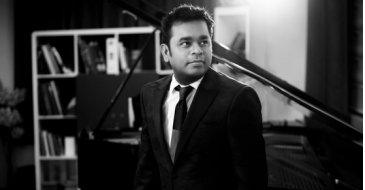

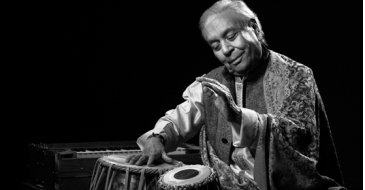
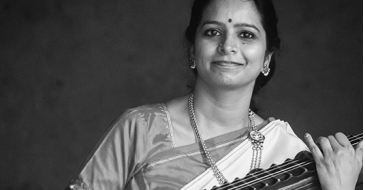
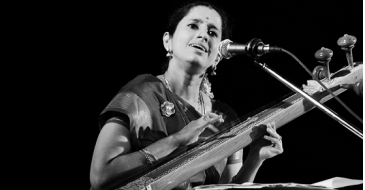
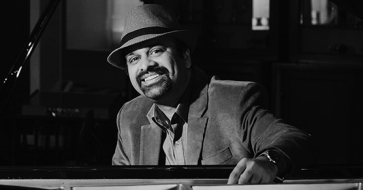
krishna prasad gopalarathnam
August 18, 2017
Kamakshi
August 13, 2017
Dr K Parameswaran
August 12, 2017
Sivaramakrishnan
August 12, 2017